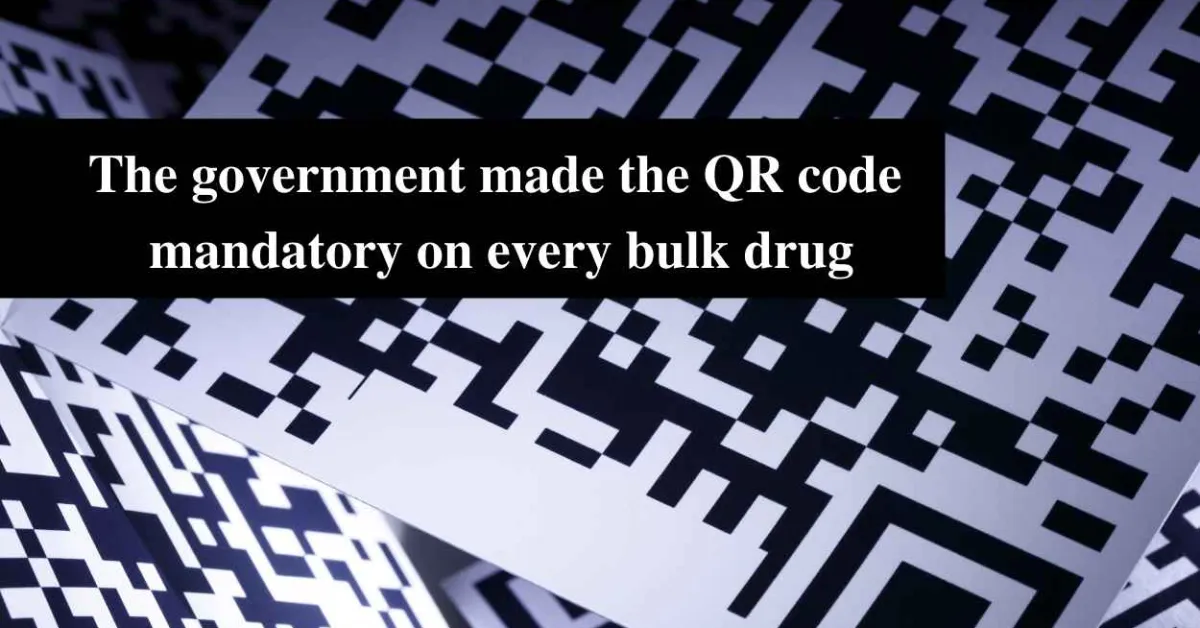The government of India made the Quick Response (QR) code mandatory on every bulk drug manufactured or imported in India to curb counterfeit or spurious quality of medicines. This rule will be applicable from 1st January 2023.
The QR code will help track and trace bulk drugs (Active pharmaceutical ingredients or APIs) during the entire supply chain. And it will ensure that the quality of APIs should not be altered.
The QR code will include product information such as, unique product identification code, name of the API, brand name if any, name and address of the manufacturer, batch no., batch size, date of manufacturing, date of expiry or retesting, serial shipping container code, manufacturing licence no. or import licence no. and special storage conditions required if any.
Every active pharmaceutical ingredient (bulk drug) manufactured or imported in India shall bear Quick Response code on its label at each level packaging that stores data or information readable with software application to facilitate tracking and tracing.
The government has been trying to implement this QR Code system since 2011, but due to the repeated refusal of pharma companies, no concrete decision could be taken on it. Because there is no separate ministry of pharmaceuticals available in India, pharmaceutical industries were concerned about the fact that different government departments would issue different guidelines.
In 2018 CDSCO introduced a trace and track mechanism for top 300 drug brands. In May 2018, the proposal of CDSCO was cleared by the Drugs Technical Advisory and printed a 14-digit number on the labels of the top 300 pharmaceutical brands identified by it.
Niti Aayog expressed concern and decided to fight the growing problem of counterfeit drugs in India and introduce a real drug supply-chain using blockchain distributed ledger and Internet of Things software along with Oracle. Blockchain technology helps to permanently register a drug’s record in the manufacturer’s drug supply chain serial number, labelling, scanning, leaving no scope for record tampering. At every point of hand change, it records the drug’s movement – from manufacturer to logistics, to stockist to hospital, or pharmacy to consumer. In case of a fake drug, the software will detect irregularity. Additionally, critical information such as chemical ingredients of the drug or maintenance of temperature control in case of life saving drugs or vaccines, can also be tracked.
After discussing with Pharmaceutical industries which demanded uniform QR code, CDSCO issued a draft notification in August 2019. And invited concerns from stakeholders for further correction if any require. And later in January 2022, the Health Ministry with recommendation from DTAB mandated QR code on every bulk drug manufactured or imported in India. Now it will be easy to identify genuine and counterfeit medicines.














